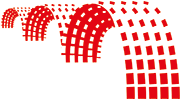
by Agunbiade Modupe Roseline
Federal University of Technology, Akure, Nigeria
With the trend of technological development, language use has become diversified. Infiltration in communication is achieved through the use of modern technology and this is generally referred to as Computer-Mediated Communication (CMC). This (emergence of technology) has increased the individual’s participation in the digital space as a desirable platform for social relationship.
Nigeria, a multilingual nation, has a rich diversity that has continued to attract scholarly attention. This has been approached from varying multidisciplinary perspectives. The reason for this could be linked to the importance of language in conducting the social, economic and political affairs in the country. For example, in addition to subconsciously acquiring the first language (L1), students learn and use the second language (L2) or third Language (L3) consciously. Others acquire these through contact or enrolment in formal education. A common variety of the English language, Nigeria Pidgin English, is accorded the status of Nigeria’s Lingual Franca in the informal discourse domain (Akinnaso 1991). Far-reaching studies have been done explaining the linguistic phenomenon in verbal communication. Extensive researches have been carried out in the area of code alternation in a formal setting, where there are rules regarding the choice of code. However, how language is used in an informal digital environment where there is no restriction to language choice and less rule-governed environment is yet to be clearly researched. This study aims at elucidating how the multilingual nature of Nigeria finds its expression among University students’ interactions in a digital environment. It also envisions identifying the prominent issues discussed in the digital space among a group of students. Consideration of the relationship between language and identity and inspirations for code alternation in the online group chat will also be made.
The corpus for the study was generated from WhatsApp group chats between September 2015 and February 2016 across four departments in the School of Sciences, Federal University of Technology, Akure, Nigeria. The researcher made physical contact with students in the School of Sciences, FUTA and requested access to their departmental online group chats. At the initial, the students were skeptical and reluctant to release their online chat to an outsider. However, after some persuasion and assurance that the data would be anonymized for research work, an agreement was reached. These online interactions will form a major part of the output of this study. In this, a mixed method (quantitative and qualitative) approach is being employed. Digital humanities tools such as Voyant and Sketch Engine are being deployed to foreground prominent linguistic issues and keywords utilized in the group threads.
The preliminary findings of the study indicated that code alternation between English, Yoruba and pidgin were tremendously used in the online chat. There are indications that a variety of factors are responsible for the wide range of code alternation in the students’ communication in a synchronous computer-mediated environment. It was also expected that this study will reveal prominent issues discussed in the online chat and how it has endeared the students across various ethnic and cultural boundaries to subconsciously and unitedly build an online community. Thus, the study intends presenting robust information on the roles of the digital media to social relationship among different ages and cadres in the Nigeria society in particular, and Africa at large.
